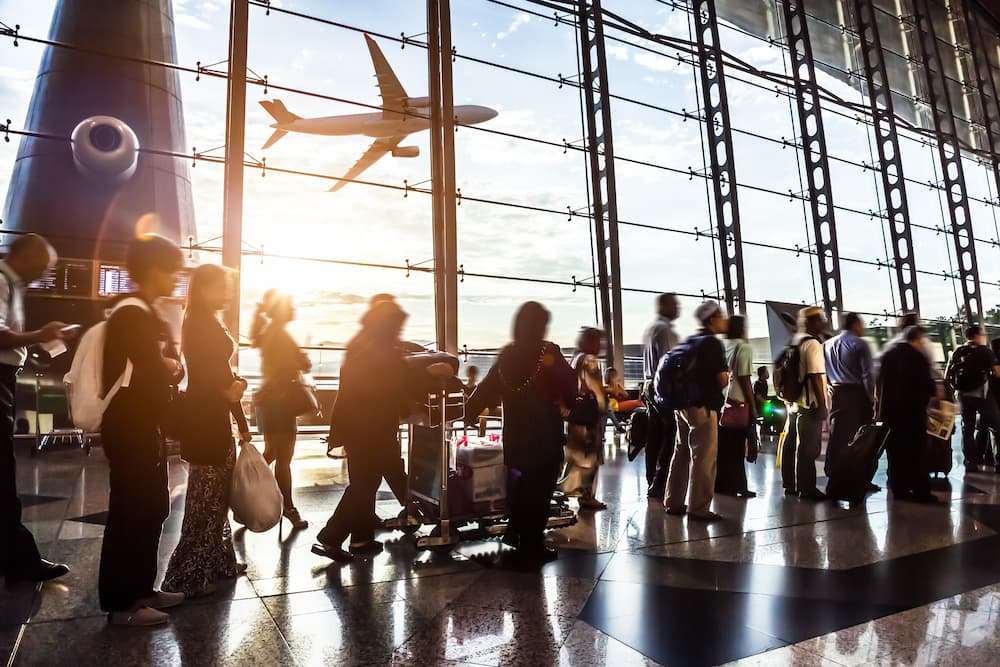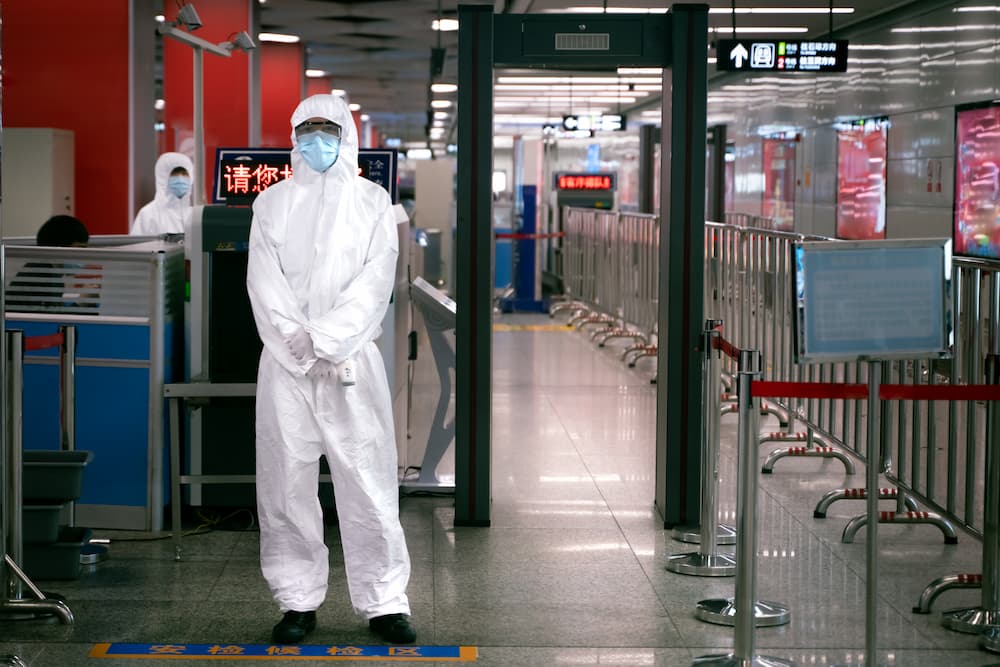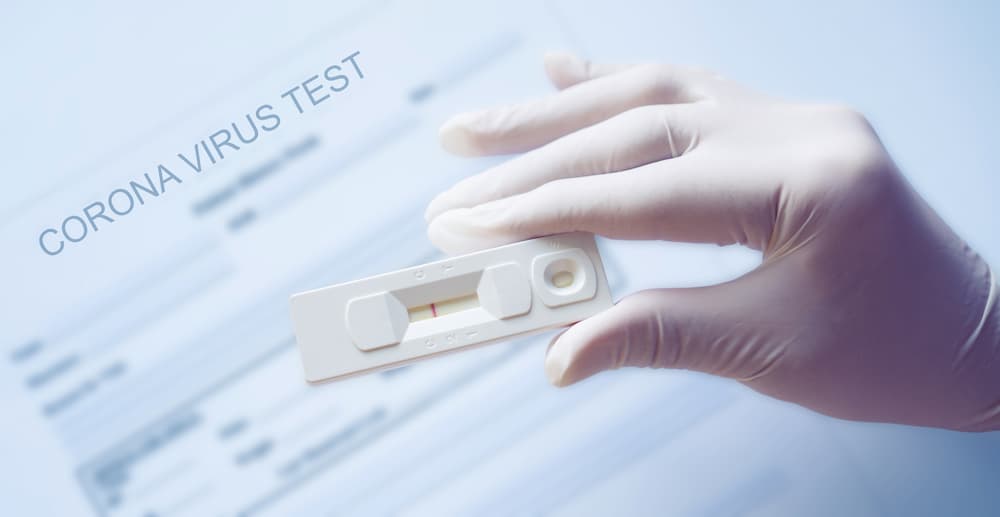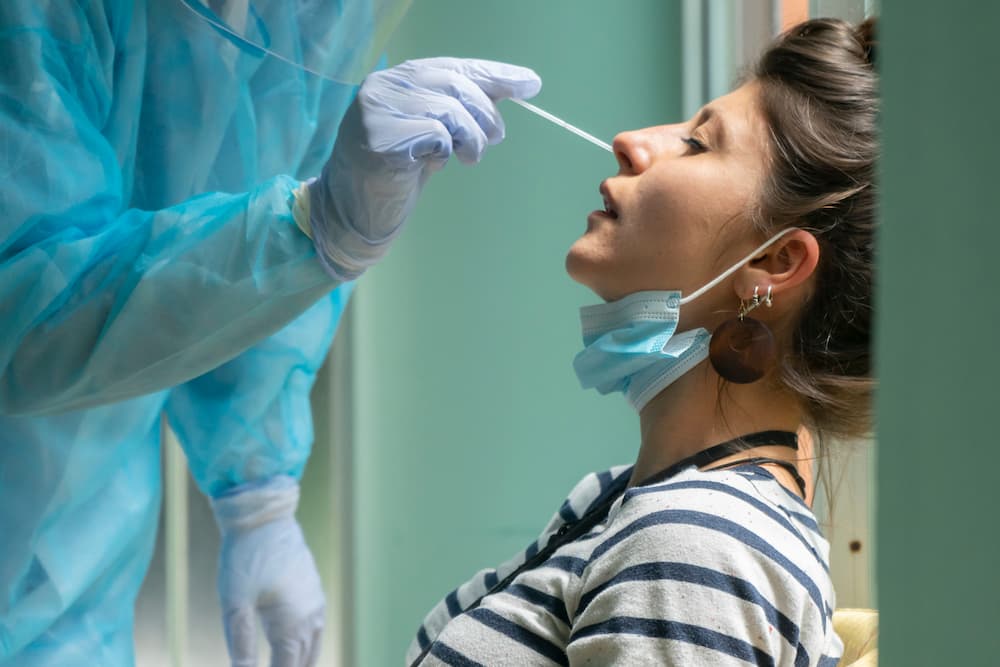
Do You Need a COVID Test to Fly to Colombia?
A Covid test is not required when arriving in Colombia.
Current Travel Restrictions for Colombia
There are no travel restrictions in Colombia. The country is also open to all travelers.
Requirements to Enter Colombia from the U.S.

- Vaccination Requirements: There are no vaccination requirements to enter Colombia
- Proof of vaccination: You’re not required to present a vaccination certificate or proof of vaccination to enter Colombia.
- Children and Teenagers: Children under 17 do not need proof of vaccination or a negative Covid test to enter Canada.
- Transiting Through Colombia: Passing through Colombia is permitted if you comply with Covid-19 entry requirements.
Documents Checklist for Colombia
You’ll need the following documents to enter Colombia:
- A Valid Passport: You must have a valid passport at entry and your entire stay in Colombia. Ensure it has one blank page for the entry stamp unless enrolled in Migración Automática, a program for frequent travelers.
- Travel Information: You must present your travel information by hand or electronic means, including your hotel reservation, a return-air ticket, and other proof of travel.
- Tourist Visa: If you intend to stay for 90 days or more, you must have a tourist visa.
Requirements for Returning to the U.S. from Colombia
If you plan to return to the U.S. from Colombia, you don’t need to be tested or vaccinated for COVID-19. In addition, non-citizen non-immigrant visitors to the U.S. arriving by air, land, or sea do not need proof of being vaccinated against Covid-19.
Symptoms
The SARS-CoV-2 virus causes Covid-19 and often results in symptoms ranging from mild to severe. After you’re infected, symptoms appear 2-14 days later. The duration between exposure and display of signs is called the incubation period. Unfortunately, you can transmit the Covid-19 virus to other people, often referred to as asymptomatic transmission. Possible symptoms of Covid-19 include:
- A new loss of taste or smell
- Cough— coughing over an hour or 3 episodes within 24 hours.
- Difficulty breathing or shortness of breath
- Chills and fever
- Diarrhea
- Runny nose and congestion
- Sore throat
- Fatigue
- Body aches
- Vomiting and Nausea
- Pink eye(Conjunctivitis)
- Headache
- Chest pain
- Rash
- Loss of appetite
Some people experience worsening symptoms such as shortness of breath or pneumonia a week after symptoms appear. In other instances, people experience symptoms more than four weeks later, a health issue known as post-Covid. Symptoms of Covid-19 are similar to upper respiratory illnesses such as colds and flu. Fortunately, most people feel better a few days or weeks after their first Covid symptoms and fully recover within 12 weeks.
When to See a Doctor
If you have symptoms of Covid-19 or have been in contact with an infected person, contact your physician immediately for medical advice. Your physician will most likely recommend you get tested for Covid-19.
When to Seek Emergency Medical Attention
Seek immediate care if you develop the following symptoms:
- A New confusion
- Trouble breathing
- Constant pain and pressure in the chest
- Trouble staying awake
- Blue, gray, or pale-colored lips, skin, or nails depending on your skin tone
Covid-19 Complications
Although most people with Covid develop mild to moderate symptoms, some experience severe complications that often result in death. Older citizens and people with underlying medical conditions are at a greater risk of developing complications. The common Covid-19 complications include:
- Blood clots
- Multiple organ failure
- Trouble breathing and pneumonia
- Acute kidney injury
- Heart problems
- Acute respiratory distress syndrome is a severe lung condition that causes a low amount of blood to go through your bloodstream to your organs.
Total Cases in Colombia
According to the World Health Organization, Colombia recorded 6, 378,000 cumulative cases and approximately 142,961 deaths. By Ist June 2023, the population had received 90,506,612 vaccine doses. There were no new weekly Covid-19 cases at the date of reporting.
What Will Happen if I Test Positive for Covid
If you test positive for Covid, you may need to stay where you’re until you test negative. However, you can seek treatment services in Colombia.
Testing for Covid-19
Covid-19 testing allows you to make an informed travel choice. It is, therefore, essential to understand the different types of tests, their uses, and relevant samples. There are three types of Covid-19 tests, namely:
- Molecular test
- Antigen Test
- Antibody Test
Molecular Covid-19 Test
A molecular Covid-19 test is called Nucleic Acid Amplification Test or Reverse Transcription Polymerase Chain Reaction (RT-PCR) test. A molecular test for Covid-19 diagnoses a current infection. A molecular test analyzes the specimen found in the upper respiratory tract in search of genetic material(Ribonucleic Acid)RNA of the SARS-CoV-2 virus, which causes Covid-19. A healthcare provider uses a swab(a long-flexible stick inserted into your nose) to collect respiratory material found in the nose. Most molecular tests collect samples using nasal or throat swabs, with a few using saliva swabs, where a physician requests you to spit in the tube. According to a 2021 study, the molecular test registered an impressive 95.1% of instances of diagnosing Covid-19 correctly. It is therefore considered the ‘’gold’’ standard for diagnosing Covid-19. A molecular test is also sufficient to diagnose an infection, particularly if you have Covid-19 symptoms. Despite its high accuracy, it is possible to get a false negative on the molecular test for the following reasons:
- Testing Too Early: It takes up to 5 days after exposure before the virus’s genetic material builds ups to detectable levels. You may get a false negative if you test within the 5-day window.
- Testing Too Late: The virus’s genetic material declines in the respiratory tract after the first week of infection. You may therefore get a false negative if you perform the lab examination when it’s too late.
Here’s when you can expect results: You can get the results of a molecular test within 15-45 minutes at some point-of-care centers. However, it can take 1-3 days if a healthcare provider sends the sample to an external lab.
Antigen Covid Test
Antigen tests sold as over-the-counter or at-home antigen kits are also called rapid tests. It detects the SARS-CoV-2 virus, which causes Covid-19. However, they have low accuracy levels and are less likely to catch a Covid-19 infection than a molecular test. Similar to a molecular test, an antigen test can establish whether you have a current Covid infection. Antigen tests work by looking for specific viral markers called antigens. If the SARS-CoV2 antigen is present, the antigens in the kit will bind to them, producing a positive outcome. An antigen test is less accurate than a molecular test. Generally, the positive result of an antigen test is accurate and reliable. On the contrary, a negative outcome is not final, necessitating a molecular or repeat test to confirm it. You may also get a false negative if you test too soon or late after an infection. More importantly, an antigen test produces results in 15-30 minutes. FDA recommends the following guidelines when an antigen test returns a negative outcome:
- 2 antigen tests for people with symptoms, performed 48 hours apart
- 3 antigen tests for people without symptoms, done 48 hours apart
- A single PCR test to confirm an antigen result
Antibody Test for Covid-19
Antibody tests or serology tests check a previous Covid-19 infection. Antibodies are the proteins that the immune system makes to repel an infection or vaccination. The antibody test evaluates the presence of antibodies a body makes to fight the SARS-CoV-2 virus. An antibody test cannot detect a current Covid infection because it takes up to three weeks for the body to generate these proteins. When can you expect results: You can get the results within the same day and up to three days after submitting the sample to the lab. More importantly, the accuracy of antibody tests increases with time— it has an approximately 90% accuracy in week three.
Interpreting a Positive Covid Result
If the test turns out positive, the virus was detected, and you have or recently had an infection. Here are the steps to take after getting a positive result:
- Isolate
- Take precautions, including wearing a high-quality mask or respirator to protect those around you from getting infected.
- Tell those you recently had contact with that they may be exposed
- Monitor your symptoms, and seek immediate care if you notice emergency symptoms, including breathing complications.
- Contact a physician at an urgent care center to understand your treatment options.
Interpreting a Negative Covid Result
A negative Covid result means the test didn’t find the virus; however, it doesn’t rule out an infection.
- If you used an antigen test, apply the recommended FDA guidelines on repeat testing.
- If you have symptoms, consider getting tested for other illnesses such as flu.
- Anyone with a confirmed case of Covid-19 should take preventive actions to avoid further spread.
- If you get a negative outcome and are not exposed to the virus, you may resume normal activities, including travel.
Crucial Times to Get Tested
- Take the test immediately if you have Covid-19 symptoms.
- If you do not have symptoms but are already exposed, wait for at least 5 full days before taking the test.
- Before attending an event or visiting someone in a high-risk area,even if you don’t have symptoms or a recent exposure, test as close as possible to the event(1-2 days) to help you make an informed choice about your health and the risk of spreading to others.
Checklist and Resources for International Travelers
Documentation
Make two copies of your travel documents in case of an emergency, leave one at home, and carry the other separately from other documents. Remember to carry the following documents:
- Passport
- Visa
- Consent for travel with minors
- International driving permit
- Medications
Links to Important Resources
- Traveling to High-risk Areas
- U.S citizens traveling abroad
- International Travel Before You Go Checklist
- Homeland Security Advisory on Overseas Travel
Stay Informed About Covid
You can take some actions to reduce your risk of infection from Covid-19 and lower the risk of spreading it to others. CDC recommends the following precautions:
- Getting vaccinated
- Avoid places with poor ventilation and crowds
- Wash your hands with soapy water for at least 20 seconds
- Avoid close contact with anyone who is sick or has symptoms
- Avoid touching your eyes, mouth, and nose
- Wear a face mask that fits well and is comfortable while traveling or in high-risk areas.
- Clean and disinfect high-touch surfaces, including electronics, light switches, and countertops.
- Cover your nose and mouth with a tissue when you cough or sneeze, and throw away the used tissue.
Don’t Risk Your Travel Plans; Check Your Covid Status in Advance
If your Covid infection is at the incubation period, symptoms could show up when least expected. For instance, you could develop a fever at the airport, attracting the attention of border authorities. Unfortunately, Colombia authorities may require further testing or self-quarantine, leading to significant delays in your travel plans. Considering the risk of traveling without knowing your status, testing in advance is advisable. Newport Urgent Care & Occupational Medicine has a fully equipped lab and trained physicians ready to assist you. Contact us online or call us at 949.828.0613 to book an appointment.




